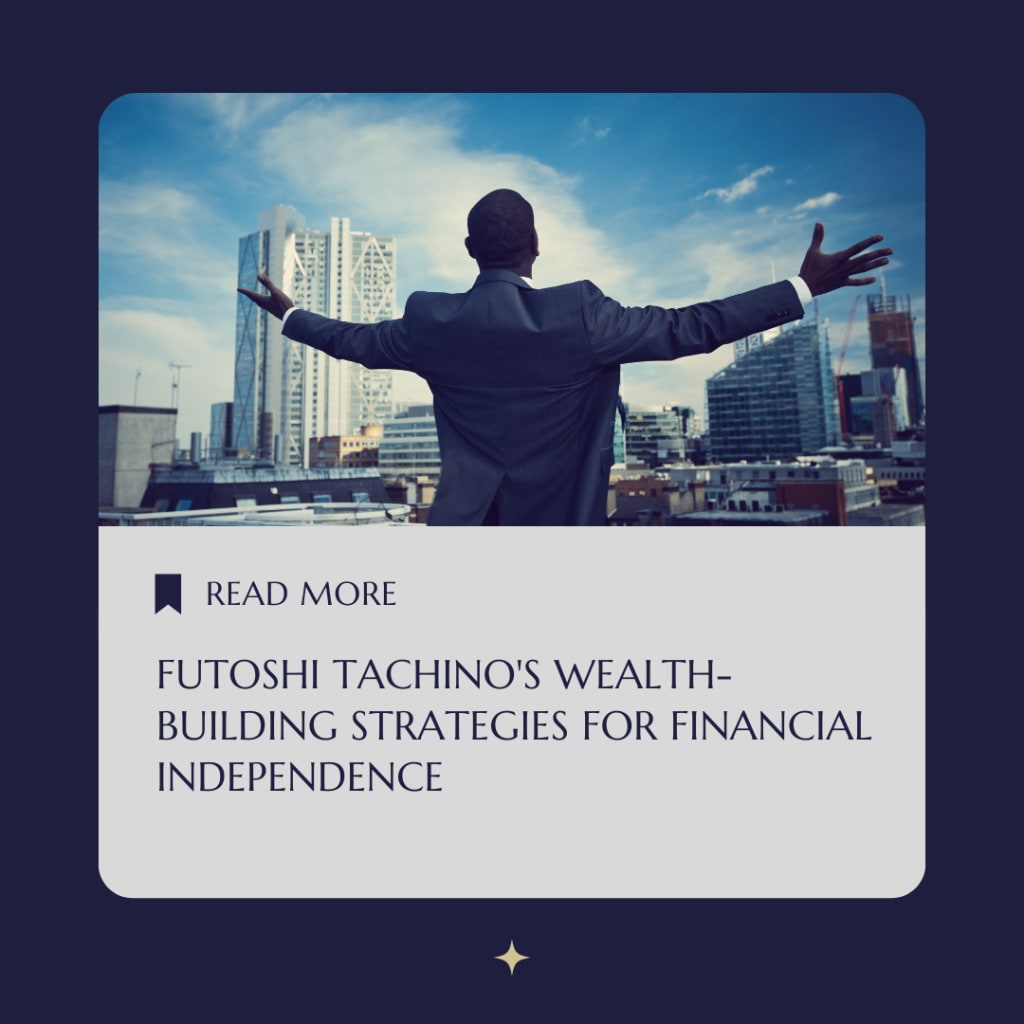Futoshi Tachino Guide to Choosing the Right Financial Advisor
Choosing the Right Financial Advisor

Selecting a financial advisor is a critical step in securing your financial future. With numerous options available, finding the right advisor who understands your unique financial goals and can help you achieve them can be daunting. Futoshi Tachino, a seasoned financial expert, offers a comprehensive guide to help you navigate this important decision.
Defining Your Financial Goals
Before beginning your search for a financial advisor, take the time to clearly define your short-term and long-term financial goals. Whether it's saving for retirement, purchasing a home, funding your children's education, or any other financial objective, having a clear understanding of your goals is crucial. Consider your priorities and the timeline for achieving each goal. This will not only help you find an advisor who can align with your needs but also enable you to set realistic expectations for your financial plan. Additionally, having well-defined goals will allow your advisor to tailor their advice and strategies to suit your specific situation, ultimately increasing the likelihood of achieving success.
Credentials and Qualifications
Look for financial advisors who hold relevant credentials and qualifications, such as Certified Financial Planner (CFP), Chartered Financial Analyst (CFA), or Certified Public Accountant (CPA). These designations indicate a commitment to professionalism and expertise in financial planning, ensuring that you receive high-quality advice tailored to your specific financial situation.
Additionally, consider the advisor's experience and track record in the industry. An advisor with a proven track record of success is more likely to have the knowledge and skills necessary to help you achieve your financial goals. Ask for references and inquire about their experience working with clients in similar situations to yours.
Fee Structure
Understand how the financial advisor charges for their services. Some advisors work on a fee-only basis, while others may earn commissions from selling financial products. Consider which fee structure aligns best with your preferences and financial situation to ensure transparency and avoid potential conflicts of interest.
Fiduciary Duty
Choose a financial advisor who operates under a fiduciary duty, meaning they are legally obligated to act in your best interest at all times. This ensures that the advice you receive is unbiased and focused solely on achieving your financial goals, providing you with peace of mind and confidence in your advisor's recommendations.
Experience and Track Record
Evaluate the advisor's experience and track record in helping clients achieve their financial objectives. Ask for references and inquire about their success stories in similar situations to yours, ensuring that they have the expertise and skills necessary to guide you towards financial success.
Additionally, consider the advisor's communication style and availability. You should feel comfortable discussing your financial matters openly and trust that your advisor will be accessible when you need them. A good advisor will take the time to listen to your concerns, explain complex financial concepts in a way that you can understand, and keep you informed about the progress towards your goals.
Communication Style
Effective communication is essential for a successful relationship with your financial advisor. Choose an advisor who takes the time to understand your concerns, explains complex financial concepts in simple terms, and keeps you informed about the progress towards your goals. A good communicator will help you make informed decisions and stay on track towards achieving your financial objectives.
Compatibility
Consider the personality and working style of the financial advisor to ensure compatibility. You should feel comfortable discussing your financial matters openly and trust their guidance throughout your financial journey. Building a strong rapport with your advisor is key to a successful long-term relationship.
Conclusion
Selecting the right financial advisor is a significant decision that requires careful consideration. By following Futoshi Tachino's comprehensive guide, you can find an advisor who not only possesses the necessary qualifications and experience but also shares your vision for financial success. Take the time to research and interview multiple advisors to make an informed choice that will benefit you in the long run.
About the Creator
Enjoyed the story? Support the Creator.
Subscribe for free to receive all their stories in your feed. You could also pledge your support or give them a one-off tip, letting them know you appreciate their work.





Comments
There are no comments for this story
Be the first to respond and start the conversation.